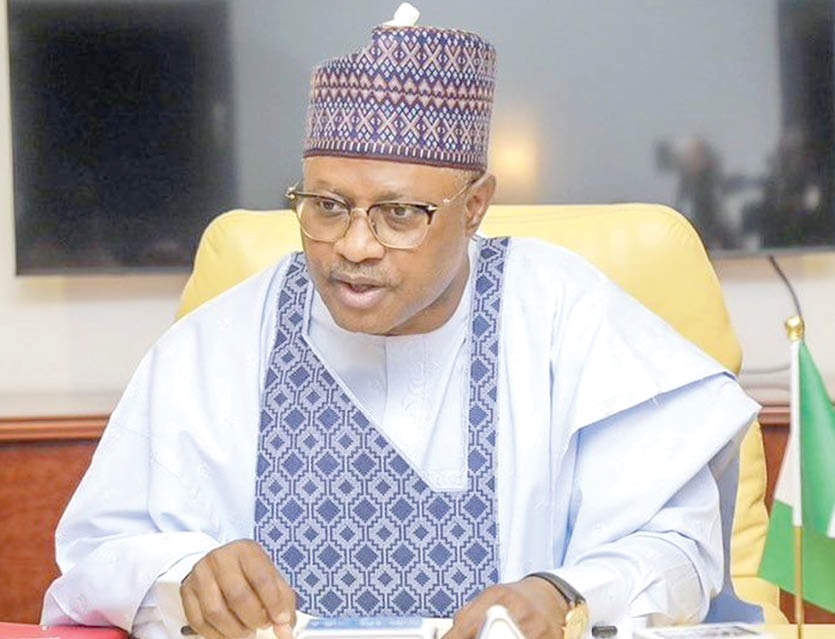Governor Uba Sani, surrounded by top government officials, recently launched the state’s climate change policy.
As the saying goes, the reward for success is more hard work. It is not yet Uhuru, the difficult journey of implementation has just started. Notwithstanding, the governor deserves commendation for providing the needed support and approval.
Being among the few states to have a policy – this singular action places it as a pacesetter in Nigeria as well as part of the global effort to combat the negative impact of climate change.
Thankfully, the state now has a framework that provides a systemic institutional arrangement, coordination and funding mechanism for effective climate action.
- Common entrance exam: Stop extorting pupils, Kwara govt warns teachers
- IPOB seeks referendum amid ‘IgboMustGo’ campaign
The commissioner, Ministry of Environment and Natural Resources, had before now, equally committed the state alongside the seven others to sign the Kano Declaration on Climate Change and Environment to address the climate crisis in the region.
Furthermore, the state has now joined other sub-nationals with specific budgetary provision for climate change mitigation and adaptation activities. Previously, it was listed among those without budget provision for climate change.
Again, according to the Study Project on “Mapping Climate Impacts, Policies and Actions at the Subnational Level in Nigeria” conducted by The Society for Planet and Prosperity, in collaboration with the Department of Climate Change, the Federal Ministry of Environment and the Nigeria Governors Forum had also shown the state was among the sub-nationals without “high online visibility”, in terms of climate change awareness.
This rating of Kaduna should definitely change by the next round of study with the policy-approval milestone achieved.
The question bogging the minds of many, however, is will this end up like many other policies on office shelves or will it be the turning point in climate change mitigation and adaptation in the state? This is more so because the challenge has never really been about designing and approving legal and policy frameworks, but effective implementation. Beyond the need for effective policy-budget linkage, adequate allocation and cash-backed releases is a bridge that will have to be crossed.
Still on financing the policy implementation, another bridge to cross is how to fast-track ongoing climate change-related governance system strengthening to leverage financing opportunities provided by UNFCCC, Kyoto Protocol, Copenhagen Accord, Paris Agreement and other COP commitments.
Furthermore, there will be a need for a comprehensive framework that will enable and attract private sector investments to ensure robust policy implementation. Not to forget the need to set-up a sector-specific development/donor coordination mechanism.
Even though the commissioner has bought into and supported the idea of drawing up a community engagement and accountability mechanism framework, with the approval of the policy, take off needs to be accelerated to support effective implementation, if the policy will make any significant difference, all hands need to be on deck.
The starting point is entrenching the OGP principles of public transparency, accountability and responsiveness to stakeholders’ engagement. Having a result-based monitoring and evaluation system will also be key in ensuring successful implementation.
Despite the significant milestone achieved, there is still a long walk to the promised land of effective climate change mitigation and adaptation. The governor will further need to demonstrate political will by providing all the strategic support (approvals) to the ministry.
Let’s engage, ask the right questions and hold the government accountable.
Yusuf Ishaku Goje is an activist on climate issues

 Join Daily Trust WhatsApp Community For Quick Access To News and Happenings Around You.
Join Daily Trust WhatsApp Community For Quick Access To News and Happenings Around You.
